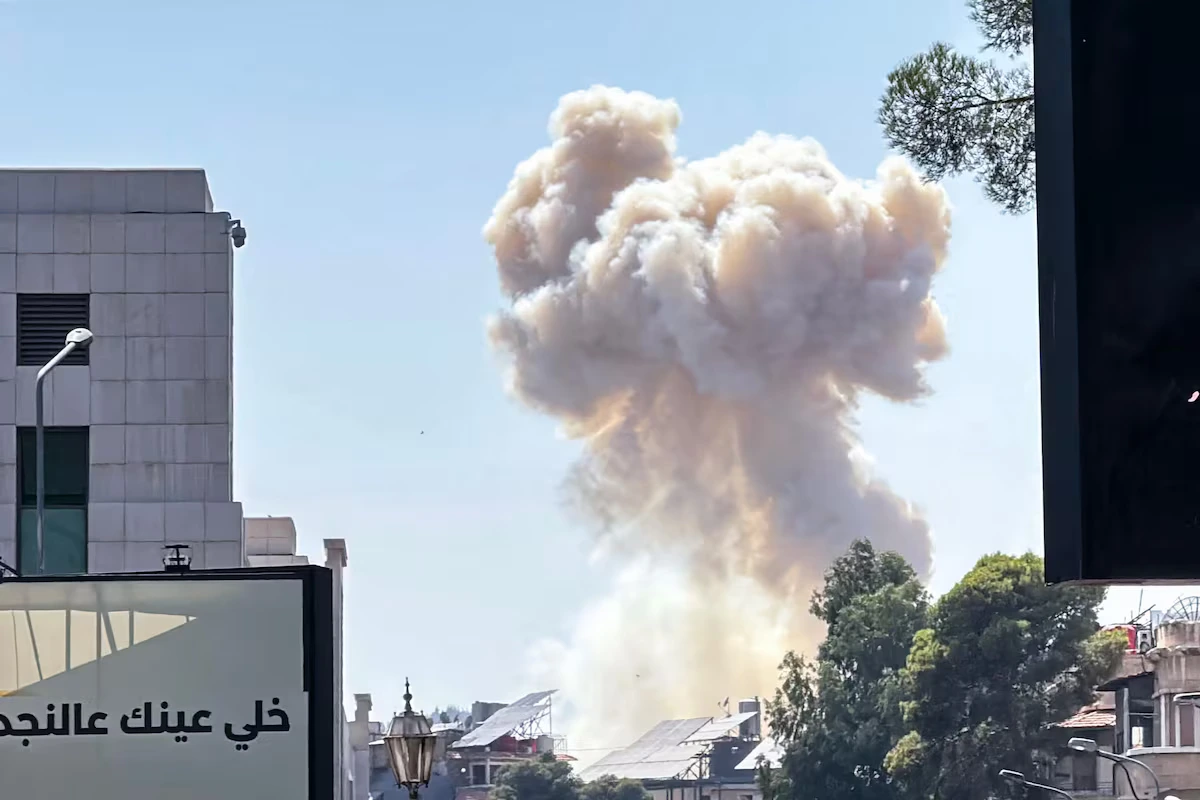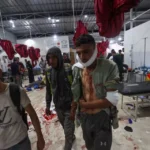The Israeli Air Force carried out a series of airstrikes on Syria’s Ministry of Defense in Damascus, marking a sharp escalation in tensions between Tel Aviv and the newly formed Syrian government. According to The Washington Post and Syrian state television, the strikes left several people injured.
Powerful Blows to the Heart of the Regime
The first strike occurred in the afternoon and appeared to cause no significant visible damage—at least none was observed from the street near the ministry. However, around 3 p.m. local time, two more powerful airstrikes struck the area directly in front of the ministry building, in full view of bystanders and journalists. Among the witnesses was a photographer from The Washington Post. In the immediate aftermath, cars were seen carrying the wounded away, although the exact number of casualties has not been disclosed.
The Israel Defense Forces (IDF) released a brief statement confirming that they had struck “the entrance of the Syrian regime’s military headquarters” and emphasized that they would “continue to monitor developments and the regime’s actions against Druze civilians in southern Syria.”
Ethnic Tensions and Damascus’ Intervention
The Israeli strikes came amid fierce sectarian violence in southern Syria, where clashes erupted between the Druze religious minority and Bedouin groups near the city of Sweida. Syrian government forces attempted to intervene and restore order, but their presence has only intensified the conflict.
Druze leaders have long expressed resentment toward the Syrian army’s presence in Sweida, fearing for their community’s safety under the new Islamist-leaning Syrian authorities. The Druze maintain their own militias and resist any attempts to bring them under central control.
Earlier this week, the Syrian army launched an operation in Sweida aimed at restoring security. However, despite a ceasefire declaration on Tuesday and calls from Druze leaders for their armed groups to stand down, fighting reignited. A prominent Druze spiritual leader who opposes the Damascus regime stated that government forces had resumed attacks on civilians and urged his followers to “keep resisting.”
Reports of Abuse and Human Rights Violations
Social media in recent days has been flooded with disturbing footage and reports of Syrian soldiers abusing and humiliating Druze civilians—beatings, unlawful arrests, and degrading treatment. The wave of outrage prompted a rare public response from Syrian President Ahmed al-Sharaa, who acknowledged on Wednesday that “violations” had taken place and labeled the incidents “criminal and illegal behavior.”
“Any party responsible for these acts, whether individuals or outlaw organizations, will be held accountable under strict legal procedures, and we will not allow them to go unpunished,” the statement read.
Al-Sharaa, who led the rebel offensive that toppled former dictator Bashar al-Assad in December, previously headed a jihadist faction once affiliated with al-Qaeda.
Israel’s Role: From Observer to Participant
While Israel has carried out airstrikes in Syria for years, it is now clearly becoming an active player in the country’s internal conflict. As The Washington Post notes, Israeli officials justify their actions as necessary to protect Druze civilians both within Syria and in the Israeli-occupied Golan Heights.
Israel has also demanded that southern Syria—particularly regions bordering Israel—be demilitarized. This stance has become increasingly urgent as Islamist groups and pro-Iranian factions grow in influence within the Syrian state apparatus.
U.S. Calls for De-escalation
Thomas Barrack, President Donald Trump’s envoy for Syria, issued a statement on the social media platform X (formerly Twitter), strongly condemning the violence in Sweida and calling on all parties to “step back and engage in meaningful dialogue that leads to a lasting ceasefire.” Barrack, who is mediating between Israel and Syria in hopes of securing a de-escalation agreement or a more permanent solution, added that “those responsible for violence must be held accountable.”
This article was prepared based on materials published by The Washington Post. The author does not claim authorship of the original text but presents their interpretation of the content for informational purposes.
The original article can be found at the following link: The Washington Post.
All rights to the original text belong to The Washington Post.


















